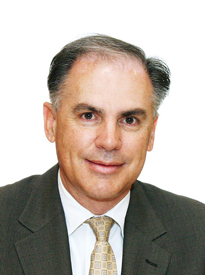For the first time in the long debate about whether tailored regulation of financial planners and financial advisors is needed, it appears that something significant will happen on this issue.
This became more evident after attending the recent press conference announcing the members of the expert panel to determine recommendations for the tailored regulation of financial planners and financial advisors in Ontario, during which I was struck by several observations:
- The lack of attendance by key players from the investment industry.
- Ontario’s Finance Minister Charles Sousa’s resolve and sincerity to actually implement any of the expert panel’s future recommendations on this issue.
- The fact Sousa parsed his words interchangeably between financial advisors and financial planners.
Along with these three observations, the investment industry itself seems ready for reform. As a result, it appears both financial planners and financial advisors who will be affected by this reform should take heed that a potential paradigm shift may be near. Consequently, they should engage to help shape the debate and prepare their practices for any impacts.
To do that, they should take note of what some of the key stakeholders are proposing on this issue:
- Advocis, the Financial Advisors Association of Canada, has proposed to create a system of an advisor oversight body or bodies that will be responsible for the compliance, education and oversight of advisors including financial planners. This proposal would require adding a new layer to our existing structure of regulation.
- The Financial Coalition, of which my organization, the Canadian Institute of Financial Planners (CIFPs) is a member, advocates carving out financial planners as a distinct professional body from the greater financial advisory universe. Under this model, a professional oversight body will oversee the ethics, standards of practice and educational requirements. The body will discipline bad actors. The Financial Coalition proposes to use existing organizations, such as the Financial Planning Standards Council (FPSC), to reduce duplication and cost for this purposed solution.
- Existing statutory regulators such as the Ontario Securities Commission, the Mutual Fund Dealers Association of Canada and the Investment Industry Regulatory Organization of Canada may wish to oversee any new government-imposed rules by extension of their powers.
So, where can the expert panel look for guidance? Usually, existing models in other jurisdictions are reviewed for their best practices in formulating new regulatory policy. The usual suspect is always the province of Quebec, in which there are enhanced education and title restrictions for being a financial planner. Some stakeholders argue that the weak point of this model is that it doesn’t have separate oversight of financial planners, as they are grouped in with other financial advisors and policed by the Chambre de la Sécurité Financière.
Another important reference system is the Financial Services Authority (FSA) in the U.K., which has spent a large amount of resources to align its advisory regulation to enhance consumer protection. This new system distinguishes between restricted financial advice — basically, product-based advice — and independent financial advice.
Beyond the requirements of qualifying under one of these advisory categories, the FSA’s system deals with all financial advisors in a homogeneous classification without carving out financial planners. On the positive side, though, it does raise the general qualifications to be a financial advisor and prescribes a code of ethics and annual professional development requirements.
The most notable aspect of the FSA’s system is that it allows financial advisors to belong to an Independent Financial Advisor Network, which is then responsible for the advice or regulatory compliance of its members.
The reason for outlining the proposed models and systems already in place in certain jurisdictions is because many stakeholders will weigh in on the expert panel’s potential recommendations, and the outcomes could be a hybrid of all the ideas and models. For example:
- Will the oversight of financial planners be carved out or remain grouped in with all financial advisors?
- Will the oversight of financial planners and financial advisors still be with existing regulators, or will they have a new additional master?
- Will any new oversight body be one super body or be delegated to various players in the investment industry, such as Advocis, the Canadian Securities Institute, the CIFPs and/or the FPSC based on their various members and professional designations? This could be much like the FSA’s model in which these organizations are responsible for the advice and compliance of their members around general qualifications and standards.
The most important point regarding the expert panel’s work is that the financial advisory services environment of the future will be different for financial planners, financial advisors and their practices.
As a result, financial planners and financial advisors should get engaged to help steer the conversation to reduce the cost and regulatory burden on their practices and have a “win/win” system for both them and their clients. This year will be important and the expert panel’s work will be the critical first step as Sousa proclaimed at the press conference.
Read the response from Advocis, A higher standard for all advisors, www.investmentexecutive.com, May 21, 2015.
